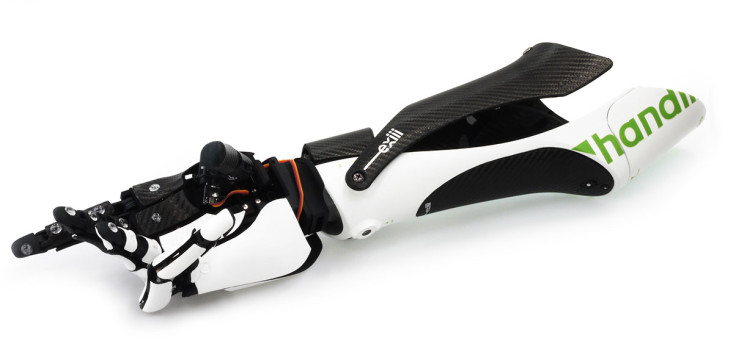Sub-£200 3D-printed bionic arm developed that connects to wearer's smartphone

A new bionic arm that uses a smartphone to process muscle signals has been developed for around $300 (£200). Created by Japanese firm Exiii, the Handiii was on show at the South by Southwest festival in Austin, Texas, demonstrating how such a relatively low price tag could be achieved by using 3D printing technology.
The device is similar to other myoelectric prosthetic hands in that it uses muscle signals from the amputated end of a wearer's arm, however it overcomes many of the problems faced by such devices.
Typically bionic limbs cost between £5,000 and £20,000 and are difficult and costly to repair. They also tend to use expensive custom built systems to process the muscle signals, while the Handiii uses a smartphone and companion app.
"To solve these problems, dexterous functionality of hand is not necessarily critical," Exii's website states. "We think it is more important to optimise functions, save the cost, and give the hand a stylish design."
Using 3D printing technology on the Handiii allows for broken parts to be replaced easily, while also making the bionic arm customisable with various colour and finger combinations.
The Handiii is currently on sale to enterprises for research and development purposes but is not yet available to the general public. The final consumer price is yet to be confirmed but Exiii has said that the final cost will need to take into account other margins beyond simply the cost of production.
"$300 is not the price tag," the firm said. "We were able to make our current prototype at $300, however, this only covers the cost for 3D-printing material and electronic modules.
"When we sell it, we have to add our labour cost and other margins derived from delivery, procurement, customer service and so on."
© Copyright IBTimes 2025. All rights reserved.






















